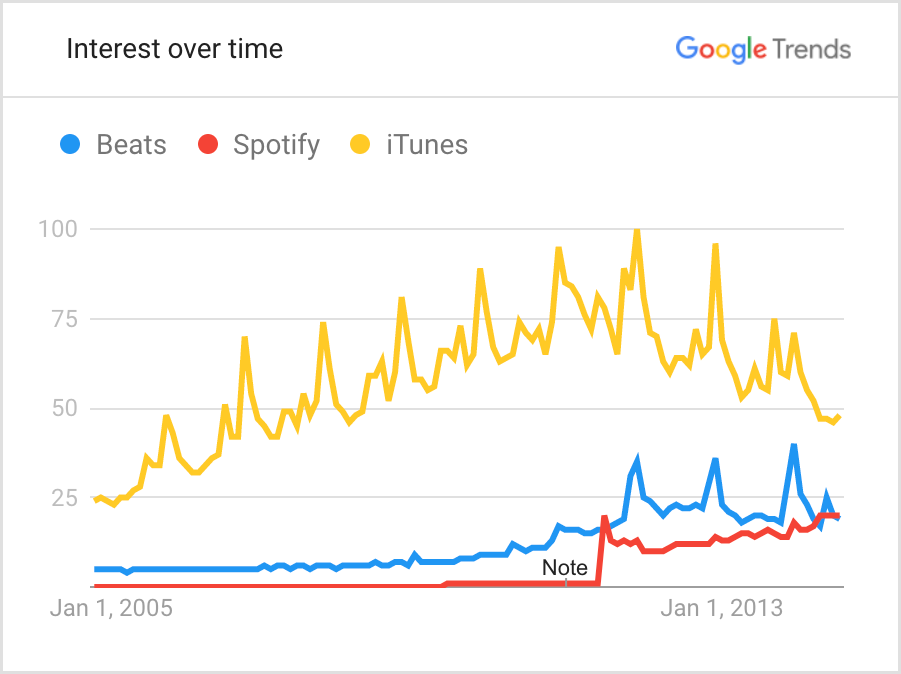Let’s take a look at the past to understand the evolution of music sales and how iTunes fits in today.
In the days of vinyl and compact discs, song selection was a luxury. The most avid music enthusiasts only bought a handful of albums each year at the store, and most people were relegated to passive listening through the mediocre quality of FM radio. Let’s say that spending $100 a year on music was a big deal.
When iTunes launched in 2001, music enthusiasts were given a way to obtain fairly high quality mp3′s from the comfort of their homes. This was an amazing value proposition amidst the controversy of Napster at the time. All of the record labels embraced it, and over the next 12 years, iTunes went on to sell over 25 billion songs. Even Dr. Dre said, “Man, somebody finally got it right”.
Today, in 2014, song selection has become massively ubiquitous. The average music enthusiast has access to millions of songs for free AND legally from streaming services like SoundCloud, Spotify, and even YouTube. The problem is, at $1.29 per song on iTunes, $100 buys you only 70 songs. This disparity is the reason why the iTunes model no longer makes sense, and the market is yet again ripe for disruption. Music streaming services may deserve a little more attention than we are giving them.
If the logic above is not enough for you, this graph will not lie:

Consumers are already making the switch. Apple knows it too, and this sheds a ray of light on the recent acquisition of Beats Electronics for $3 billion, which not many people know has it’s own streaming service.

Remember in 2000 when Dr. Dre slammed Napster with a lawsuit against downloading music online? Man, have we come a long way.
This shift in consumer mindset is important for all parties within the music industry to understand. Shortsighted bureaucracy as exhibited in Kaskade’s SoundCloud account being deleted by Sony Music Entertainment will not serve anyone well. As music streaming becomes more and more commoditized, the ability of the artists and record labels to depend on album sales will diminish as well. Putting your music online will become less and less about the price tag and more and more about converting listeners into concert ticket buyers.
Hey, music labels! Steve Jobs isn’t there to pick your shit up this time around. How will the music industry reinvent itself yet again?